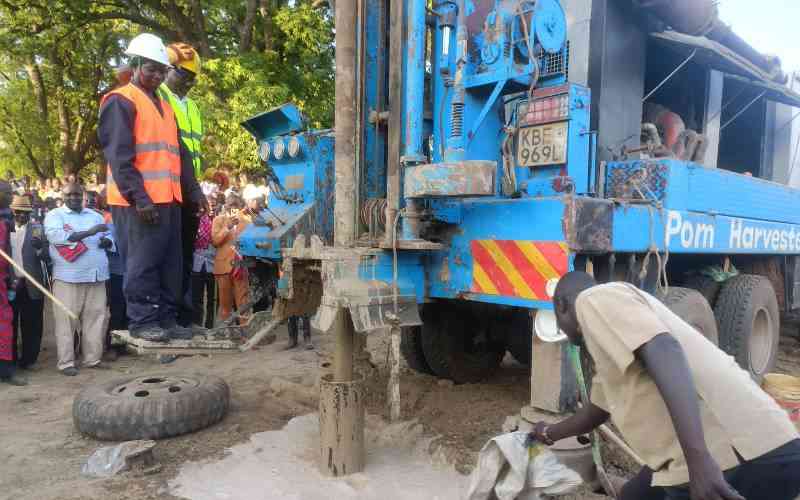×
The Standard e-Paper
Kenya’s Boldest Voice

Pokot Senator Julius Murgor with help of the plant operator launching borehole drilling at AIC Chesombur mixed secondary school on Monday. [Isshreel Shanzu, Standard]
Water scarcity in most schools within Sigor, West Pokot has affected learning as learners are forced to trek for several kilometres for the commodity.